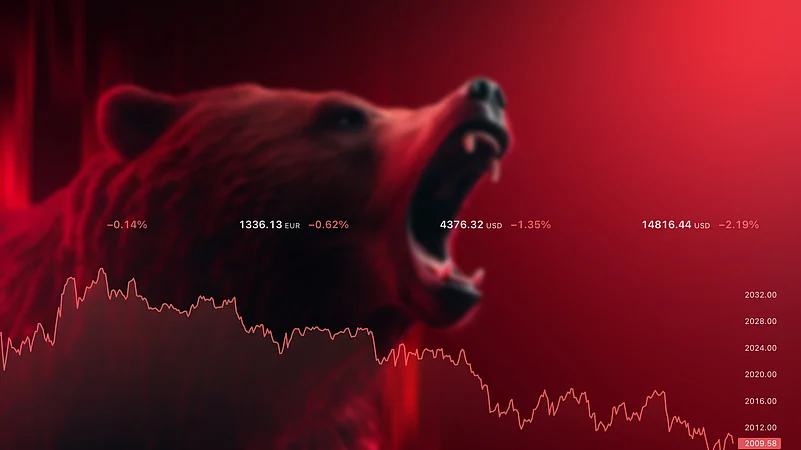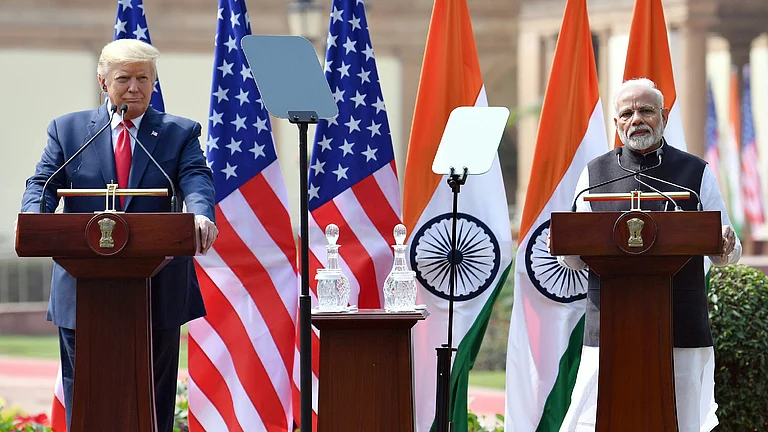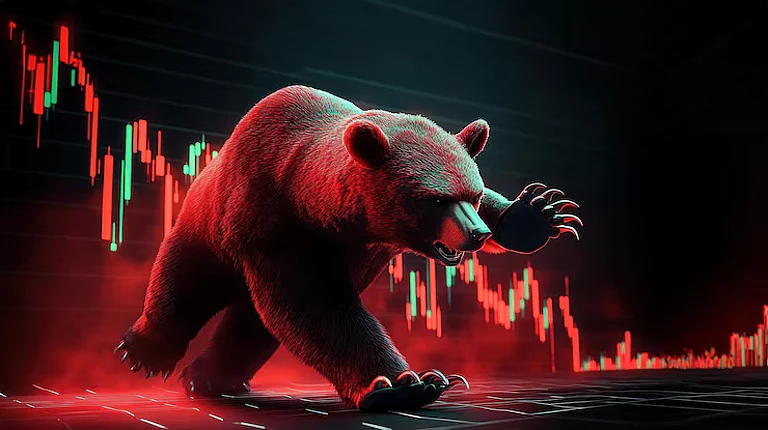Stock Market Crash: Indian stock market crashed over 1,200 points Tuesday afternoon as muted quarterly earnings and concerns over US trade policy a day after President Donald Trump announced a 25% tariff on import of steel and aluminium continued to dampen investor sentiment.
On Tuesday, the Sensex opened at 77,384.98 against its previous close of 77,311.80 and tanked 1,281 points or 1.5% to hit day’s low of 76,030.59 during the session. The Nifty 50 opened at 23,383.55 against its previous close of 23,381.60 and dropped around 400 points or 1.7% to a low of 22,986.65.The broader market witnessed more pain as mid-cap and small-cap indices fell by as much as 3.5% and 3.9%, respectively.
The market capitalisation of all BSE-listed companies fell by Rs 9.87 lakh crore to Rs 407.95 lakh crore.
Lately, Indian equity markets have witnessed significant selling pressure amid persistent foreign capital outflows, weak Q3 earnings, economic slowdown and the Indian rupee falling to all time lows against the US dollar.
In the last five session, the equity benchmark BSE Sensex has tanked over nearly 2,500 points while the Nifty 50 has fell over 750 points or 3.2%.
Why is the Stock Market Falling Today?
US Tariff Hike on Steel and Aluminium
On Monday, President Donald Trump announced significant tariff hikes on steel and aluminium imports, imposing a flat 25% rate “without exceptions or exemptions.” The decision aims to support struggling industries but also increases the risks of a trade war on multiple fronts.
Trump removed country-specific exceptions, quota agreements and several product-specific tariff exclusions. A white house official confirmed that the new tariffs will be implemented on March 4. The tariff rate will return to 25% imports from countries like Canada, Brazil, Mexico, South Korea and others that were previously exempt.
According to Trump, the move will simplify tariffs on metals “so that everyone can understand exactly what it means”. "It's 25% without exceptions or exemptions. That's all countries, no matter where it comes from, all countries."
"Trump’s latest decision to impose 25% tariffs on steel and aluminum will impact countries like Mexico, Brazil, South Korea, and Vietnam the most. Metal prices will remain soft for a long time," said Dr. V.K. Vijayakumar, Chief Investment Strategist at Geojit Financial Services."
Subdued Q3 Earnings
The overall Q3 earnings season for India Inc. has been weak, reflecting ongoing economic challenges such as weak rural growth and muted urban consumption. Sectors including pharma, auto and IT were in-line with market expectations while others such as banks and FMCG were disappointing.
“Rise in oil and gold imports, supply chain disruptions and restrictive trade regulations are all on the horizon, hence we were not expecting magic from earnings calls,” said Kush Gupta, director at SKG Investment & Advisory.
“Going forward, we are cautiously optimistic, while India’s growth story remains strong, we can’t shield ourselves from global outlook that looks uncertain. If there is proactive government intervention to improve manufacturing, a better sentiment from FIIs then FY26 could be the turnaround year in corporate earnings which could put us on the path of another growth cycle,” he added.
Overvaluations Continues to be a Concern
According to some experts, the Indian stock market is still expensive despite the sharp correction in last few months and the weak expectation of improvement in corporate earnings is hurting the market sentiment.
The relentless selling by FIIs in large-caps has made their valuations fair while the valuations of mid and small-caps continue to be excessive, said Vijayakumar.
On Monday, “Valuation guru” Aswath Damodaran, professor of finance at New York University (NYU) said the Indian stock market is the most expensive equity market in the world and no amount of handwaving can justify its valuations.
Persistent FPI Selling
Foreign investors have remained constant sellers since the October last year amid rising US bond yields and a stronger dollar, driven by fading prospects of a Fed rate cut anytime soon.
As of February 10, foreign institutional investors (FIIs) have sold Indian stocks worth Rs 12,643 crore in the cash segment. Since October, they have taken out over Rs 2.75 lakh from the Indian stock market, further contributing to market weakness.
Higher Bond Yield and Dollar Index
The US 10-year Treasury yield rose to 4.519%, with the two-year yield at 4.283%. Meanwhile, the dollar index increased to 108.26, resulting in greater capital outflows from emerging markets such as India.
Higher bond yields make US assets more attractive, while the strengthening dollar raises foreign capital costs, which negatively impacts market sentiment.
































